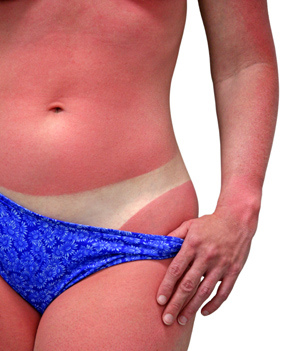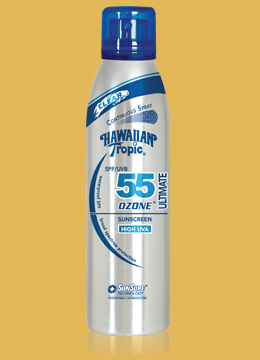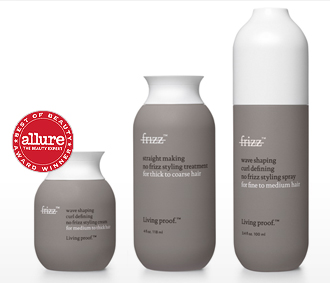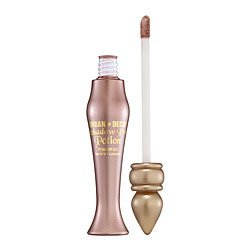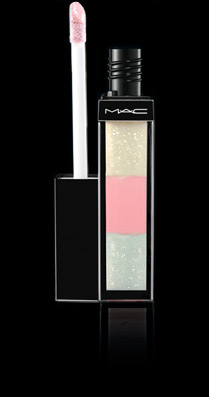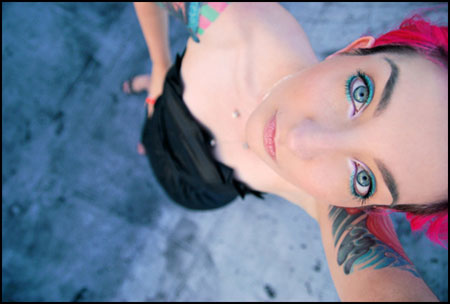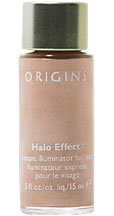June 26, 2009
Those who know me, know that I don’t ever shut up about sunscreen. And, I talk a lot about skin cancer. But, I do have a good reason. We found out four years ago that SirHoney had melanoma.
He went in to have an area on his temple looked at so I asked him to have the Dr. look at a new spot on his neck. They did biopsy it but the doctor didn’t seem to be too concerned.
We received the phone call from the dermatologists’ office on the Friday after Thanksgiving, which also happened to be the day of Meems’ wedding. SirHoney didn’t answer the phone. I think he knew that it was bad news if the office was calling on a holiday. He went in for surgery immediately after we got back in town.
It was the scariest thing that has happened to us in 18 years of marriage. After chest x-rays, a PET scan, and a visit to the oncologist, we were told that it had not spread to any other part of his body. Now, he just sees his dermatologist once every six months for a full body check up.
He’s also had six or seven surgeries to remove basal cell skin cancer. Basal cell can be VERY invasive and can leave some pretty intense scars, but it doesn’t metastasize to other organs.
Melanoma does metastasize and if not caught early, it is extremely hard to treat and can be fatal.
Studies show that most common signs of melanoma are in the ABCDE rule. And the ABCDE rule is as follows:
- Asymmetrical – this refers to the shape; if one half of the mole does not match the other half in size, shape, color, or thickness;
- Borders – it may be ragged or otherwise irregular; the edges are scalloped, blurred, or poorly defined;
- Color – it may be uneven, with shades of black and brown; the color of the mole is not the same throughout or it has shades of tan, brown, black, red, white, or blue;
- Diameter – it may change in size; melanomas are usually greater than 6mm in diameter, but they can be smaller; if the diameter of a mole is larger than the eraser of a pencil
- Elevation – a portion of the mole appears elevated, or raised from the skin.
These few rules can be very helpful in determining the difference between just a regular freckle or mole and a possible melanoma.
A few weeks ago when we went to the desert for a Father/Son golf tournament, my friend and I hung out by the pool while the guys golfed. I noticed a mole on my friend’s back that I thought looked a little suspicious so I asked her if she had ever had it looked at. She said no. She didn’t seem very concerned and I didn’t want to be overly pushy but I did tell her that it looked very similar to the one SirHoney had on his neck and asked her to please get it checked. She went the dermatologist the following week and they did biopsy it. She since found out that it was melanoma. Luckily, it was in a very early stage and she will be fine.
SirHoney has a family history of melanoma but we didn’t know it. If your mother, father, siblings, or children (first-degree relatives) have had a melanoma, you are part of a melanoma-prone family. Each person with a first-degree relative diagnosed with melanoma has a 50 percent greater chance of developing the disease than members of the general public who do not have a family history of the disease.
My friend didn’t have anyone in her family that has had the disease. I know it’s very controversial, but her doctor did tell her that she probably got the skin cancer from years of using the tanning beds. She was told to stop going to the tanning salon and to start using a good sunscreen.
I’m bringing this up because now that it’s Summer, more people will be out in the sun that aren’t normally exposed. We’re in the sun just about every day for some period of time. When we lived in Texas, I would use sunscreen if out by the pool for the day but now that we live in California, we use sunscreen every single day! Every. Single. Day.
SirHoney still hates the fact that he has to cover himself in sunscreen, especially when golfing. We have done a lot of experimenting with different sunscreens to find one that doesn’t run and get into his eyes when he sweats. We’ve found the Neutrogena Ultra Sheer Dry Touch with 70 SPF to be the very best.
It goes on easily and doesn’t leave any unwanted residue. Even though this one doesn’t state that it is specifically ‘sweatproof’, it doesn’t run and sting his eyes. I’ve started using this one myself.
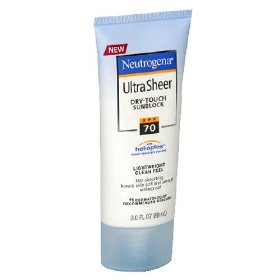
Neutrogena Ultra Sheer Dry Touch 70 SPF
Now that we know SirHoney’s family is melanoma-prone, I’m very adamant about making sure that HayHay uses sunscreen every day. And I’m always on the lookout for a good long lasting sunscreen for him to use when he surfs. Right now, on his face, he’s using the Neutrogena Sport Face. It also doesn’t leave a residue and seems to stay on longer than some of the others.
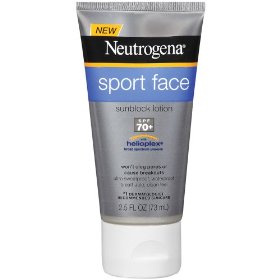
Neutrogena Sport Face 70 SPF
I don’t have the same skin type as the guys so I don’t always use a 70 SPF. I’ll use the 70 SPF on my face, but my absolute favorite is the Neutrogena Cooling Mist SPF 45 . This spray is not only refreshing, but it stays on for several hours, even at the beach. I always have a can of this with me.
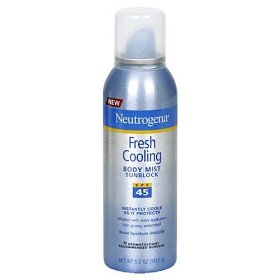
Neutrogena Fresh Cooling Body Mist 45 SPF
Can you tell we like Neutrogena? I don’t care for the smell of Coppertone for some reason, but HayHay does like this Coppertone Sport Continuous Spray. So, since he likes it, I still buy this one for him. He sprays this one all over his body before surfing and it does seem to work well.
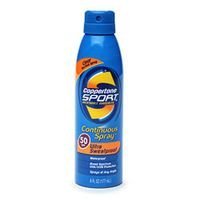
Coppertone Sport Continuous Spray 50 SPF
There’s one more spray that I really like because I LOVE the smell of Hawaiian Tropic. It reminds me of being out by the pool with friends as a teenager. Of course, we used the original brown label oil, but I was so happy when I found this Hawaiian Tropic Dry Tanning Oil Spray.
Since this is only a 12 SPF, I only use it on my legs and do reapply more often than I would if it were a higher SPF. I just can’t resist the scent. I can close my eyes and pretend that I’m in Hawaii!
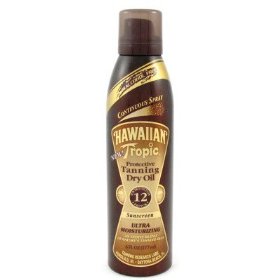
Hawaiian Tropic Tanning Dry Oil 12 SPF
We’ve tested a lot of sunscreens over the past several years and have found these to work the best.
Lastly, please find out if you have a family history of melanoma. Use sunscreen and visit your dermatologist every year. It could save your life.

~LilSis
